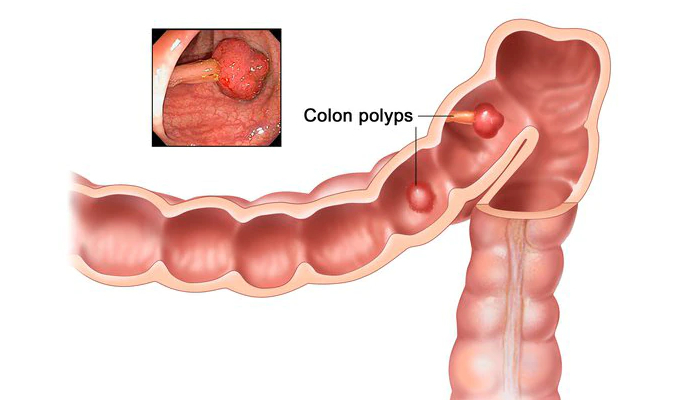What’s a Polyp?
It’s a small clump of cells that grows inside your body. There are 2 common types: The first hangs from a stalk. Doctors will call this pedunculated. The second is flat and grows directly out of the tissue around it. You’ll hear it called sessile. Some polyps are benign and can’t turn into cancer. Others can. The odds depend on their location, cause, and how long they’ve been there. If you have digestive issues, blood in stool, or a family history of polyps or colorectal cancer, don’t wait—consult Dr. Ujwal Zambare, the best Gastroenterologist in Wakad, Pune, for expert evaluation and treatment.

What Causes Polyps?
The causes of polyps can vary based on their location. For example, throat polyps are usually a result of an injury from shouting loudly or damage from a breathing tube. And sometimes doctors can’t determine the cause of polyps.
- Inflammation
- a foreign object
- A cyst
- A Tumor
- Mutation in the genes of colon cells
- Chronic stomach inflammation
- Excess estrogen
What are the risk factors of Polyps?
Men and people who smoke have a higher risk for bladder polyps. Women over 40 years of age and women who have had children are more likely to develop polyps in the uterus. For cervical polyps, the risk increases in women over 20 years or age and women who are premenopausal. People who habitually stress their vocal cords or have acid reflux have a higher risk for throat polyps. But there are no known risk factors for aural polyps.
Symptoms
- loss of hearing and blood drainage from the ear
- typically no symptoms, but can include bleeding during menstruation (heavier) or sex, or an unusual discharge
- blood in stool, abdominal pain, constipation, diarrhea
- similar to the common cold such as headache, nose pain, loss of smell
- nausea, pain, tenderness, vomiting, bleeding
- infertility, irregular menstrual bleeding, vaginal bleeding
- hoarse and breathy voice that develops over a few days to several weeks
- blood in urine, painful urination, frequent urination
How are Polyps Diagnosed?
Some polyps won’t require treatment, especially if your doctor says they aren’t harmful. Throat polyps typically go away on their own with rest and voice therapy. Others may be surgically removed as a precaution against the future development of cancer. Treatment for polyps depends on a number of factors, including:
- whether or not the polyps are cancerous
- how many polyps are found
- where they are located
- their size
Expert Gastrointestinal Care You Can Trust:
If you’re experiencing digestive concerns or need screening for polyps, Dr. Ujwal Zambare at True Life Clinic & Wellness Center provides advanced diagnosis and personalized treatment options. Prioritize your health with expert guidance from the best Gastroenterologist in Wakad, PCMC, Pune.
